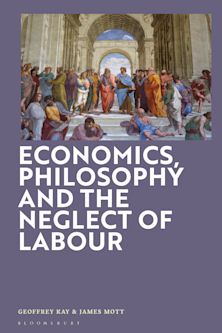Philosophies of Adoption
Perspectives and Reflections
Philosophies of Adoption
Perspectives and Reflections
Description
Edited by Lisa Cassidy and Mianna Lotz, Philosophies of Adoption: Perspectives and Reflections explores contemporary philosophical analysis of adoption, providing insight into new and underexplored topics in the field. Three scholarly developments are central to the emerging philosophical discourse on adoption explored in this volume: a problematizing of the adoption triangle or "triad", a critique of the so-called “bio-normative family", and an attention to specific issues in transracial and First Nations adoption. The book’s contributors expand on all three of these areas by addressing a range of questions—How does being adopted shape self-knowledge and identity? What challenges arise at the intersection of race and adoption? What can be learned about epistemic justice, identity, and belonging from transracial adoption? What are the narratives told about adoption?—to show how current conditions and lived adoptee experiences give new shape, meaning, and importance to philosophical thinking about adoption. Showcasing a diversity of styles and standpoints, and organized into three core themes—situating adoption, knowing adoption, and telling adoption—this book grapples with the adoption experience, historical and recent developments in adoption practice, and emerging directions in philosophical scholarship.
Table of Contents
Lisa Cassidy and Mianna Lotz
Part I: Situating Adoption: Histories, Contexts, Boundaries
Chapter 1: Adoption, Race, and Rescue: Transracial Adoption and Lesbian/Gay Ascendency to Whiteness
Bonnie Mann
Chapter 2: Racist Structures of American Indian Interracial Adoption
Susan Devan Harness
Chapter 3: ‘Unsettling’ Adoption: Rethinking Parenting in the Shadow of Colonialism
Mianna Lotz, Colin Macleod, and Taylor-Jai Mcalister
Part II: Knowing Adoption: Epistemic Justice and Injustice
Chapter 4: Adopting Silence: On Adoptee Disenfranchisement and Epistemic Injustice
Ryan Gustafsson and Michele Merritt
Chapter 5: Adoption Stories and Epistemic Neglect
Cara O’Connor
Chapter 6: Racial Belonging and Identity: Impacts on Transracial Adoptees’ Epistemic and Moral Agency
Nabina Liebow and Ryan Gustafsson
Part III: Telling Adoption: The Stories We Tell
Chapter 7: Heavy with Child: Infertile Attachments, Existential Racism, and Geneticism
Frances Latchford
Chapter 8: Adoption in New Media: Changing the Narrative?
Lisa Cassidy
Chapter 9: Excerpt from The Girl I Am, Was, and Never Will Be: A Speculative Memoir of Transracial Adoption
Shannon Gibney
Chapter 10: “It’s So Very Layered”: In Conversation with Shannon Gibney
Shannon Gibney, Lisa Cassidy, and Mianna Lotz
Product details
| Published | Jun 15 2024 |
|---|---|
| Format | Ebook (Epub & Mobi) |
| Edition | 1st |
| Extent | 234 |
| ISBN | 9781666933574 |
| Imprint | Lexington Books |
| Publisher | Bloomsbury Publishing |
Reviews

ONLINE RESOURCES
Bloomsbury Collections
This book is available on Bloomsbury Collections where your library has access.



































